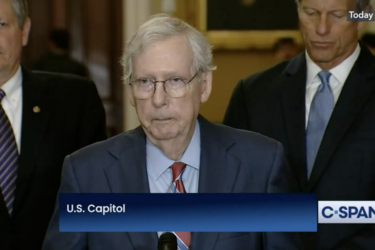
Gradually losing our hearing as we age – a condition known as presbycusis – is pretty common. For many older adults, it can be devastating.
According to the Centers for Disease Control, approximately one in three people in the United States between the ages of 65 and 74 has hearing loss, and nearly half of those older than 75 have difficulty hearing. Men are more likely to experience hearing loss than women.
Having trouble hearing can make it hard to understand and follow a doctor’s advice, respond to warnings, and hear phones, doorbells, and smoke alarms. Hearing loss also can make it difficult to enjoy talking with family and friends, leading to isolation.
Hearing loss is different from many other signs of aging in that it tends to be considered an invisible handicap, according to Claudia Dewane, D.Ed., L.C.S.W. As she explains in this article for Social Work Today:
“Volume is not necessarily the issue; difficulties with sound and word discrimination may be involved. The need to repeat or experiencing non-sequitur responses adds to negative perceptions of older adults with hearing loss as being slow. Internalizing these stereotypes and the resultant negative self-perception certainly contributes to emotional sequelae of hearing loss.”
A sense of belonging is important for everyone, but perhaps even more so for older adults, who may have mobility issues or can no longer drive. The American Speech Language Hearing Association estimates that less than half of those older than 65 who could benefit from hearing aids purchase them. Many deny a problem exists, and family members may inadvertently enable a line of thinking that it is “just aging,” according to Dewane. Cost and discomfort are also significant drawbacks.
A recent study published in the Journal of the American Geriatrics Society may provide the impetus for older adults to get assessed and purchase hearing aids. Researchers compared the rate of cognitive decline among older adults who use hearing aids with those who do not. Among their conclusions is that self-reported hearing loss can be associated with an accelerated cognitive decline in older adults; hearing aid use mitigates this decline.
A Johns Hopkins University School of Medicine study found that older adults with hearing loss are more likely to develop problems thinking and remembering than older adults whose hearing is normal. On average, older adults with hearing loss developed a significant impairment in their cognitive abilities 3.2 years sooner than those with normal hearing, according to senior investigator Frank Lin, M.D., Ph.D., an assistant professor at the medical school and the university’s Bloomberg School of Public Health. Increasing social isolation may be a contributing factor since loneliness is a known risk factor for cognitive decline.
An NPR report last month points out that hearing loss is not unique to older adults, but tends to impact them on more levels than other age groups. Stress, high blood pressure, depression, and heart disease are a few of the additional health-related effects.
High-tech hearing aids soon may be sold over the counter, according to Kaiser Health News. However, cost still may prevent many older adults from purchasing them. Medicare does not cover hearing aids as a “durable medical device” nor cover exams for hearing and fitting hearing aids. However, it will pay for diagnostic hearing and balance exams if deemed medically necessary by a health provider. Interestingly, Medicare does cover more expensive cochlear implants for people with “severe-to-profound” hearing loss.
Gordon Glantz in The Hearing Journal writes that the problem is exacerbated by a lack of willingness by manufacturers to push the FDA about the health benefits associated with hearing aids.
Some Medicare Advantage (MA) plans do cover hearing aids and many states will pay the cost for low-income older adults under Medicaid. U.S. veterans also may qualify for no-cost hearing aids from the Veterans Administration. Also, hearing aid manufacturers and nonprofit organizations such as the Lions Club provide free or reduced-cost devices for older adults for older adults who qualify financially. The Better Hearing Institute offers a guide to additional resources.
Other community programs may also offer assistance. Journalists can check with their local health department, audiology clinic or the state audiology association to find out more.









